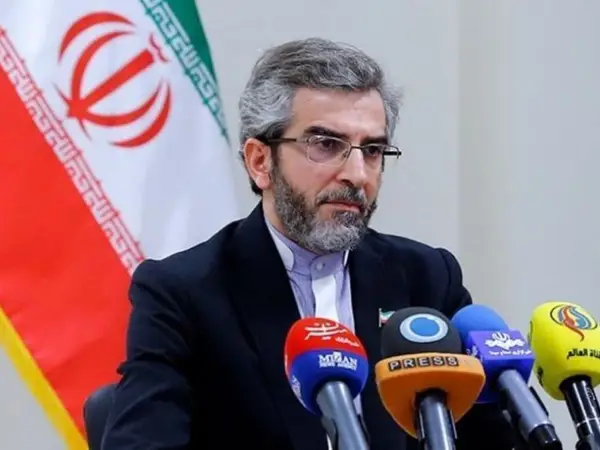Some Iranian analysts across the country's political spectrum suggest that Tehran should step down from its hardline positions in a bid to forge a nuclear deal.
During the past week, an increasing number of analysts and political commentators in Iran have pointed out that some of Tehran's expectations including the lifting of all sanctions and demanding guarantees of a permanent US commitment to the Joint Comprehensive Plan of Action (JCPOA) might be farfetched.
It is not yet clear whether they are urging the government to make life easier for Iranians or it is the government that directs the commentators to make remarks politicians might want to use to justify a dramatic change in their positions once nuclear talks resume at the end of November.
Hardline analyst Mehdi Poursafa wrote in a commentary published by IRGC-linked Fars news agency on November 14 that "Negotiations only aiming at lifting the sanctions will not bear any particular fruit when looked at from a legal standpoint." He suggested that "instead, Iran should make sure that it has some verifiable financial gains."
Safapour argued that the United States has regularly awarded exemptions to Iran sanctions, allowing limited oil exports and natural gas sales. He implied that the same approach could apply to some of the current sanctions in the future.
It appears that analysts like Safapour would be happy with such exemptions. He also mentioned the example of US exemptions about trade with China regardless of sanctions imposed in the 1980s following the Tiananmen Square atrocities.
The biggest advantage Iranian negotiators can gain in the next round of negotiations with the West is "a framework that enables Iran to benefit from trade deals with the West", Safapour maintained, regardless of formal commitments.
Meanwhile, moderate conservative Khabar Online summarized debates on Clubhouse among Iranian analystsabout the same matter. Hassan Lasjerdi, one of the editors of the website said that negotiators from all sides normally brag about their expectations during the weeks before talks begin. He said most of the preconditions, including lifting all the sanctions before negotiations start are not achievable. Lasjerdi said he was sure negotiators' remarks will become more reasonable once the talks start.
Mehrdad Pashangpour, a political analyst also opined that the call for the lifting all the sanctions against Iran is "a good political bluff."
Political activist Hadi Mousavi said individuals around former nuclear negotiator Saeed Jalili, including Bagheri, have begun thinking that the nuclear issue is not the main topic of the upcoming talks. It is a pretext based on which other matters could be discussed between Iran and the West.
He argued that the United States gave as many concessions to Iran as it could during the previous rounds of talks and now it is Iran that should be ready to give concessions. As a matter of fact, Mousavi said, because of opposition to the JCPOA in the US Senate, America might even take back some of the concessions it had previously offered.
Mohammad Mohajeri, another editor at Khabar online said that Zarif and his team were against the December 2020 legislation that called for the reduction of Iran's commitments under the JCPOA while hardliners at the time supported the bill. Mohajeri said that now the hardliners have also realized that the legislation is not in Iran's best interest, and it is likely to be overturned overnight with a decree from the Supreme Council of National Security.
